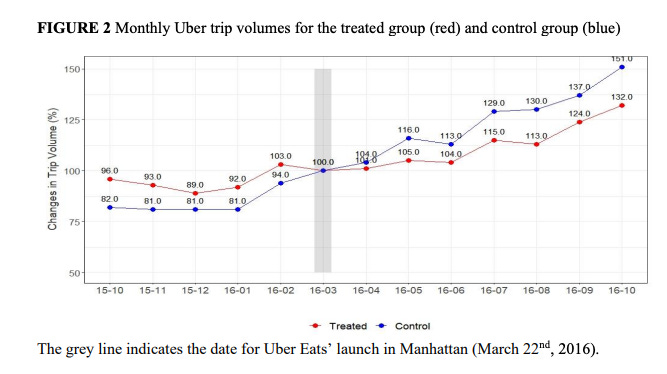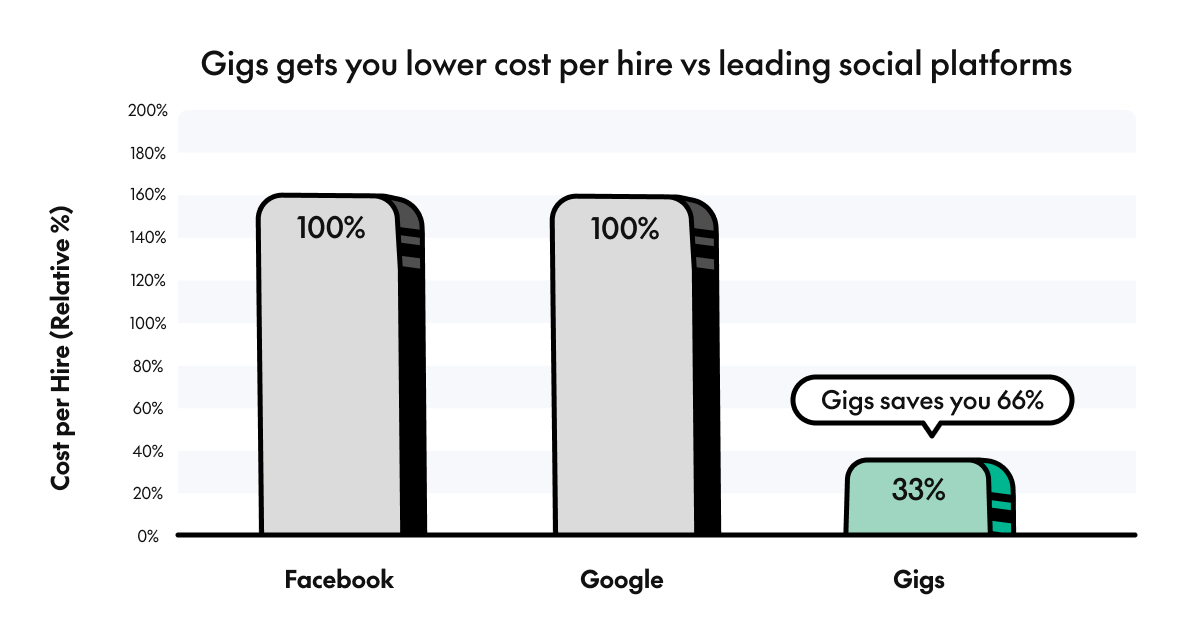Is Food Delivery Killing Ridesharing?
Feds bans single-use packaging, Grab buys Chope, Amazon goes green
We’ve got two encouraging signs that the green transition is going full steam ahead, with the Federal Government banning single-use plastics from its own food service ops by 2027, and Amazon also moving away from wasteful packaging. But before we get to that, a fascinating new study finds that the rise of food delivery has led to a drop-off in ride-hailing, but not for the reasons you might think…
This week’s edition is brought to you by Gigs.
Today:
More Delivery Means Less Ridesharing
Feds Ban Single-Use Foodservice Packaging
Chart Time | Amazon Goes Green
Grab Buys Reservation Platform Chope
OPS | Is Food Delivery Cannibalizing Rideshare Workers?
A fascinating new study has some unexpected findings: the rise of food delivery over the past eight or so years has led to a decline in rideshare trip volumes, but not for the reasons you might think. The University of Michigan’s Ross School of Business looked at the roll out of Uber Eats in NYC and found that for every 1% increase in local restaurants joining the platform, passenger trips on Uber fell by 2%, while those on Lyft plummeted by 7%. The drop isn’t because consumers used to hail a ride to restaurants and instead switched to getting the food brought to them; rather, TNC drivers shifted their labor to completing delivery trips, reducing worker supply and driving up costs for travelers looking to hail a ride. The effect was particularly pronounced for Lyft, because workers would log out of the app for long stretches so they could instead complete transactions for Uber Eats and DoorDash.
The Big Picture: This differences-in-differences study really hammers home how much Lyft has suffered for lacking a food delivery arm. But looking at a the ecosystem as a whole, limits to worker supply (whether imposed by the city level as in 2019, or by the firms themselves) really do drive up prices and diminish consumer options. While one solution may be to allow workers to complete food and passenger trips at the same time, since at this point there’s likely enough liquidity to match transactions where it wouldn’t be overly detrimental to either order, a better approach is to further encourage the use of bicycles and mopeds for delivery work. That bifurcates the markets into two, non-rivalrous supply pools: workers with cars shuttle passengers, while workers with two-wheelers carry food.
PARTNER | Gigs Gets You a Lower Cost per Hire
Gigs empowers companies like GoPuff to hire gig and hourly workers (either gig or W2) at the lowest possible cost per hire. We specialize in high-volume, high-churn roles such as warehouse workers, delivery drivers, and general labor positions. Our extensive network ensures we quickly reach the right applicants in any market. We consistently deliver hires at a lower cost than Facebook and Google, making us the most cost-effective solution for your hiring needs.
Visit us at getgigs.co/employers.
POLICY | Feds Look to Phase Out Single Use Food Containers
Goodbye plastic coffee cup, adios styrofoam clamshell, sayonara… greasy polymer bag that’s just kinda bundling your whole order together. The Biden-Harris Administration has issued a pledge to eliminate all single-use, non-recyclable and non-compostable packaging from the federal procurement of foodservice operations, events and packaging by 2027, and from all federal operations by 2035. This follows a 2022 Department of Interior order to phase out single-use plastics in national parks, and an announcement last month that the GSA was reducing single-use plastic packaging in federal purchasing.
The Big Picture: The actual pronouncement — “Mobilizing Federal Action on Plastic Pollution: Progress, Principles, and Priorities” — is an 83 page treatise, showing just how many agencies and workstreams a process like this touches. What’s notable, however, is that this plan only applies to the federal government directly, it doesn’t regulate any other users of single-use plastic. The hope is that this will set an example for private-sector companies, who will in turn cut down on disposable foodservice containers, and also that the Feds’ huge buying power will tip the scales towards making this transition more economical for everyone else. And you better believe that if a more pro-oil, anti-environment administration comes to power in 2025, this order is going right out the (takeout) window…
CHART TIME | Amazon Greens Up Its Packaging Too
It’s not just Uncle Sam that’s greening up the supply chain, Amazon is making a push as well. The company’s 2023 Sustainability Report highlights how it’s slowly shifting away from oversized corrugated boxes, to shipping items directly in their product packaging or using smaller, flexible mailers. The ecommerce giant also notes it now has 19,000 Rivians on the road, and if you broaden that to EVs of all types it’s got 7,200 in India, 3,000 in Europe and 11,800 in America.
ACQUISITIONS | Grab Buys Reservation Platform Chope
Grab, the delivery and ridehailing platform that’s big across much of Southeast Asia, just acquired Chope, a restaurant reservation and guest management platform that’s also HQed in Singapore. Grab plans to continue operating the Chope brand, app and website, while using it as a spearhead to get more restaurants onto its main platform, and also bolstering its “super app” push to get consumers to use Grab for dining-out occasions as well. Besides Singapore, Chope has a footprint in Hong Kong, mainland China, Indonesia and Thailand, and maintains extensive integrations with the likes of TripAdvisor, Meituan Dianping, Google, DBS and Alipay.
The Big Picture: Reservation platforms are proving to be a particularly hot sector of the market these days, with credit card cos, travel platforms and 3PDs all viewing the booking engines as a valuable add-on to their core businesses. Last month, AmEx gobbled up Tock for $400M, and just last week OpenTable cozied up to Visa. While TripAdvisor has become a big consolidator in the space, having gobbled up a number of smaller platforms in Europe, Asia-Pacific is proving a trickier nut to crack, with the comparison platform recently throwing in the towel on its operations in Australia. Other popular restaurant reservation platforms in APAC include OpenRice, Eatigo and super apps like Naver.
A Few Good Links
How the collapse of freight industry disruptor Convoy left small operators in the lurch. Krispy Kreme sells off Insomnia Cookies. Is third party or direct ordering more profitable? Marco’s Pizza snags ex-Disney World exec. NLRB slows push for expanded joint employer standard. Elliott Investment Management pushes for changes at Starbucks. Ryder buys Pit Stop Fleet Services to expand mobile maintenance offerings. Port of Long Beach cargo soars 41%. Big Y Foods launches pharmacy app. PA OKs ready-to-drink cocktails. HNO readies mobile hydrogen station. State AGs push FEMA to define heat and wildfire smoke as major disasters. Moose looks to make buying used e-bikes easy and reliable. Swiggy pivots away from Minis, its small business storefront platform, swapping a discovery site for link-in-bio services. Ethiopia’s EV-only policy hampered by lack of chargers, electricity.
Got a tip, feedback, or just want to say hi? Reply back to this email.
— Brought to you by the Curbivore Crew.







